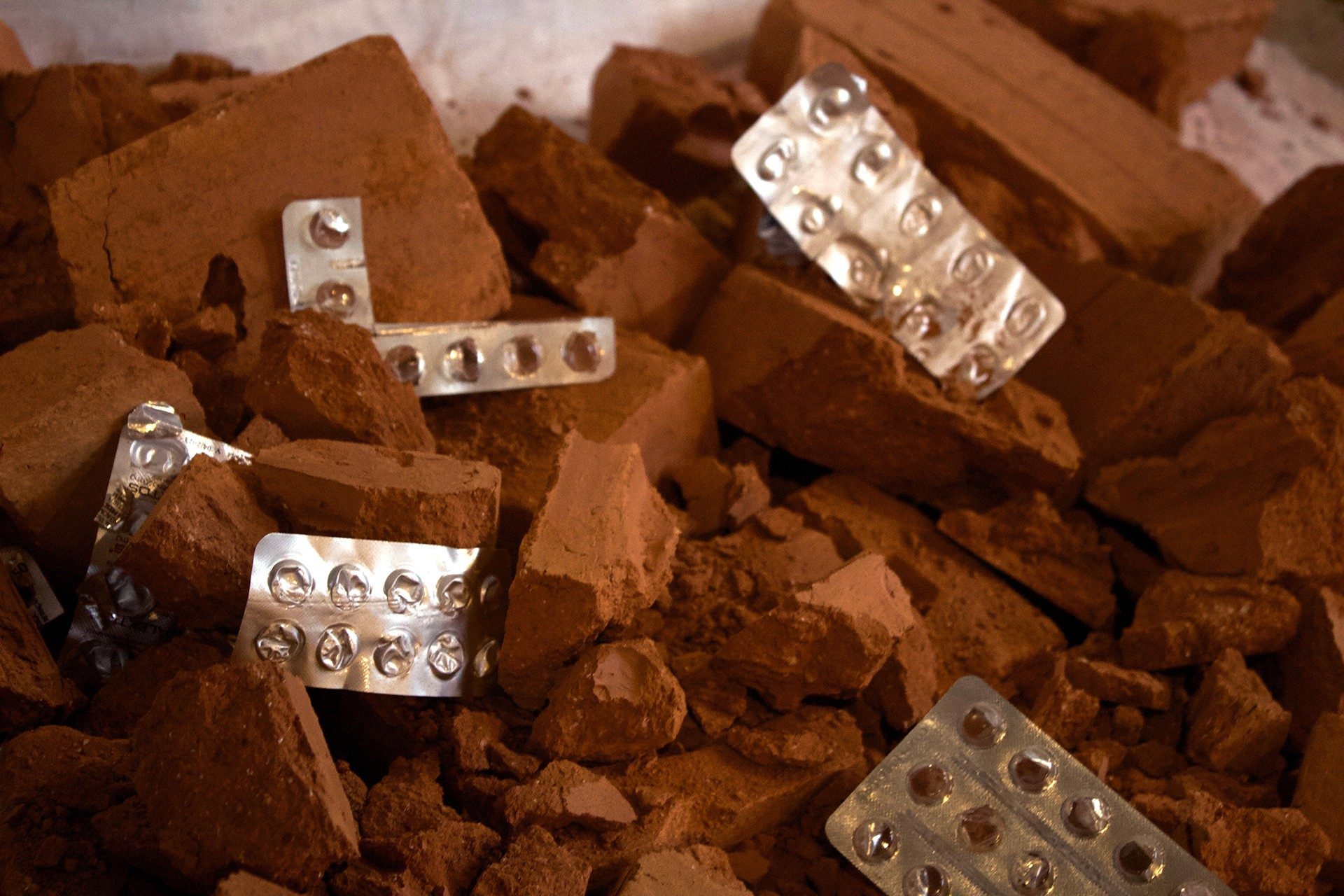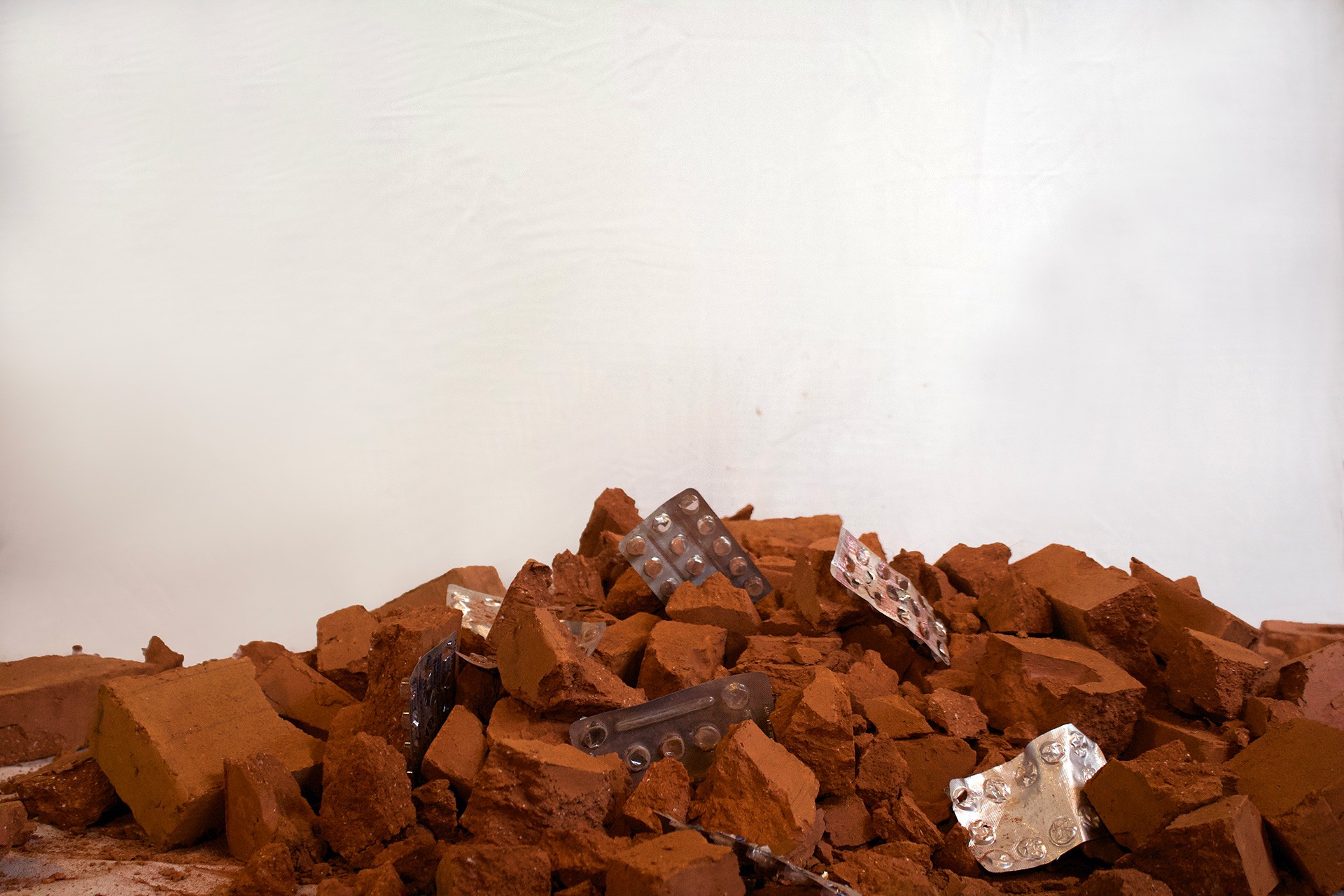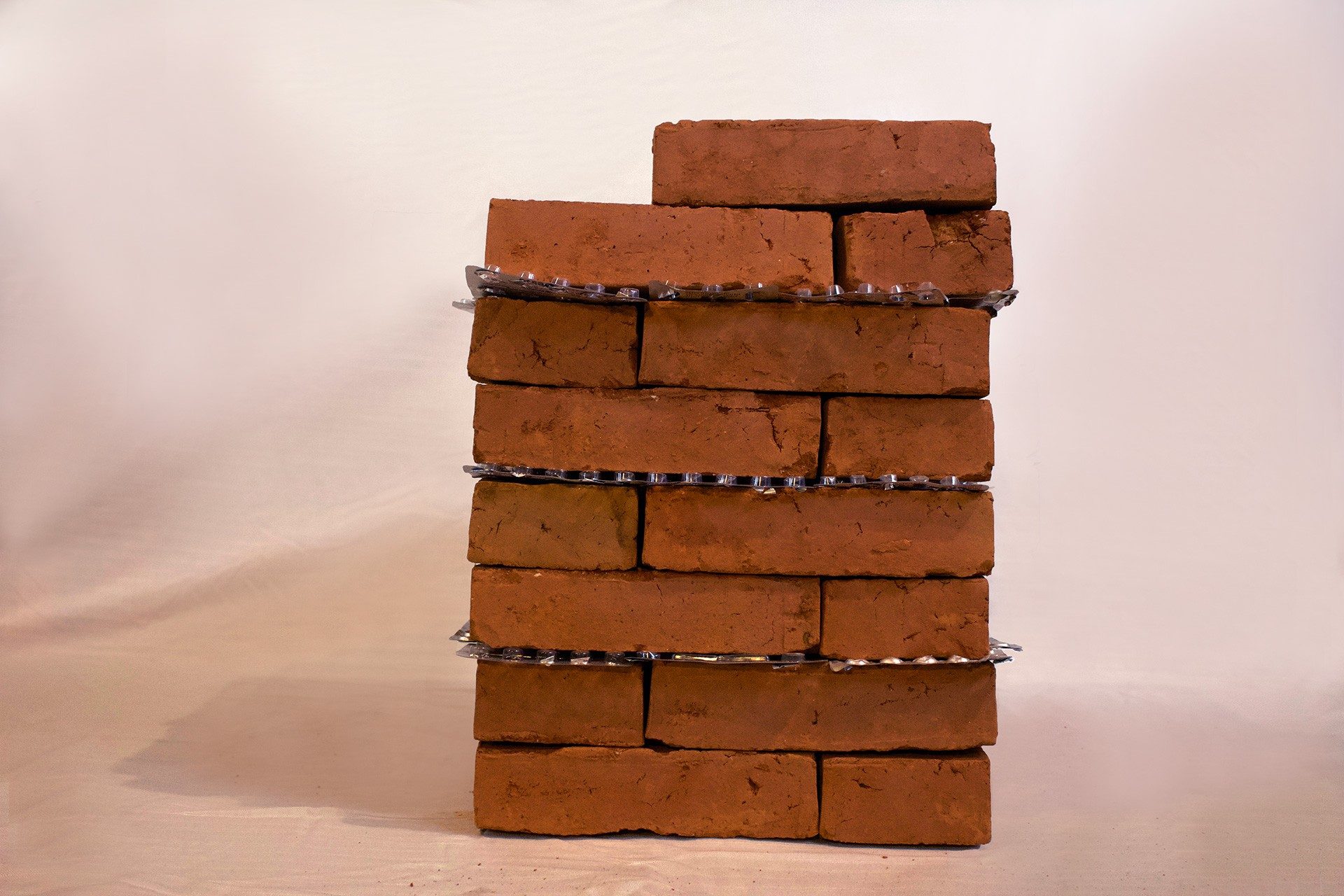Julie Glicenstajn
RUÍNAS
2021

In-situ installation, clay bricks, empty antidepressant blister packs
15″ x 72″ x 49″
HD video, 40 seconds, 2023
Artist statement
The autobiographical work RUÍNAS, is the embodiment of Julie Glicenstajn’s processing of grief. In December 2020, the artist returned to Brazil to take care of her father, who was sick. During the next 8 months, Glicenstajn became his primary caregiver, while she saw him lose his hair and will to live, every single day. Lost in the midst of her grief, the artist found herself contemplating life’s fragility, as well as her reliance on antidepressants to stay alive. Back in her home country of Brazil, due to differences in weather and material availability, clay bricks are used as the foundation to every house constructed. Mixed with cement, buildings are raised — sturdy and indestructible by nature. In this video-performance, brick by brick, pill by pill, the artist is lifted. Yet, in the blink of an eye, that which seemed to be resilient and stable, falls apart. Unpredictable breakdowns collapse the entire foundation, and all that is left are ruins. In a moment of utmost vulnerability, the artist invites the audience to discuss the importance of one’s mental health and the complex processing of grief.


RUÍNAS
i carry everything
i carry the world
i carry the weight of living
& the desire of dying.
i carry the burden of the world
& the fear of the future
i am anxiety
i am explosion i am epiphany.
i combust & i go spiralling
i can feel the lump in my throat.
i am grief i am ruins.
am i overthinking?
maybe i don’t carry anything
– maybe the pills carry me.
Artist biography
Born in 1999 in São Paulo, Brazil, Julie Glicenstajn (she/her) is an abstract multimedia artist. In 2019, she moved to Montreal, Quebec, where she is currently pursuing a BFA in studio arts at Concordia University. Her practice involves an interdisciplinary approach that unites installation, painting, embroidery and video work while exploring themes of vulnerability, grief and mental health. Glicenstajn’s autobiographical body of work intends to build intimate relationships with the public. Materiality brings great significance to her work, where she uses unconventional materials like cement, plaster and bricks, to question the boundaries of resilience and fragility. Julie has been the recipient of the Elspeth McConnell Fine Arts Award, the Fine Arts Reading Room Artist in Community Bursary Program and has exhibited both in Canada and in her home country, Brazil.
